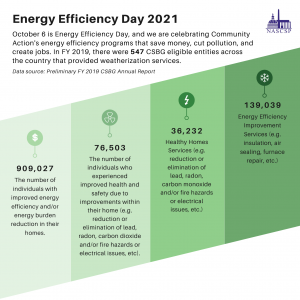
Maximizing Efficiency: Advancing Energy Efficiency Technologies
In an era where sustainable practices and resource optimization are paramount, the realm of energy efficiency is witnessing a paradigm shift. This article explores the evolution of advanced energy efficiency technologies, their significance, and the transformative impact they have on diverse sectors.
The Imperative for Energy Efficiency
As the world grapples with climate change and the depletion of finite resources, the imperative for energy efficiency becomes increasingly clear. Beyond the environmental benefits, enhancing energy efficiency is a strategic approach to meet growing energy demands, reduce costs, and foster long-term sustainability.
Technological Innovations Driving Efficiency
Advanced energy efficiency technologies leverage cutting-edge innovations to optimize energy consumption across various applications. From smart grids and IoT-enabled devices to machine learning algorithms, these technologies are reshaping the landscape by providing real-time insights, automating processes, and ensuring precise energy utilization.
Smart Buildings and Intelligent Systems
One prominent area of advancement is in the realm of smart buildings equipped with intelligent systems. These systems integrate sensors, automation, and data analytics to monitor and control various building functions. From lighting and HVAC systems to occupancy sensors, smart buildings contribute significantly to energy conservation and cost-effectiveness.
Industrial Energy Management
Industries are adopting advanced energy efficiency measures to streamline operations and reduce energy consumption. Industrial energy management involves the integration of energy-efficient technologies, real-time monitoring, and predictive maintenance. This not only minimizes environmental impact but also enhances the overall productivity of industrial processes.
Renewable Energy Integration
The synergy between advanced energy efficiency and renewable energy sources is a key driver of sustainability. Smart grids, energy storage solutions, and demand-response systems play a crucial role in integrating renewable energy into existing grids. This ensures a reliable and efficient transition towards a more sustainable energy mix.
Data-Driven Decision-Making
The proliferation of data and analytics is revolutionizing energy management strategies. Businesses and organizations can now make data-driven decisions to optimize energy use, identify inefficiencies, and implement targeted improvements. The insights derived from data analytics empower stakeholders to create more effective and tailored energy efficiency solutions.
Policy and Regulatory Support
The advancement of energy efficiency is often facilitated by supportive policies and regulations. Governments worldwide are recognizing the importance of incentivizing energy-efficient practices through measures such as tax credits, subsidies, and stringent energy efficiency standards. These policy frameworks create a conducive environment for the widespread adoption of advanced energy efficiency technologies.
Consumer Empowerment and Behavioral Changes
A critical aspect of advanced energy efficiency is engaging consumers in the process. Technologies that provide real-time feedback on energy consumption empower individuals to make informed choices. Coupled with educational initiatives, this fosters behavioral changes, encouraging a culture of energy conservation at both individual and community levels.
Challenges in Adoption and Implementation
While the potential benefits of advanced energy efficiency technologies are significant, their widespread adoption faces challenges. High upfront costs, interoperability issues, and the need for skilled professionals are among the hurdles. Overcoming these challenges requires collaborative efforts from industries, governments, and technology providers.
The Future Landscape of Energy Efficiency
The trajectory of advanced energy efficiency technologies points towards a future where energy consumption is optimized, environmental impact is minimized, and sustainable practices are ingrained in our daily lives. To delve deeper into Advanced Energy Efficiency, visit this link. As technology continues to evolve, embracing these innovations is pivotal for building a resilient and sustainable energy future.










